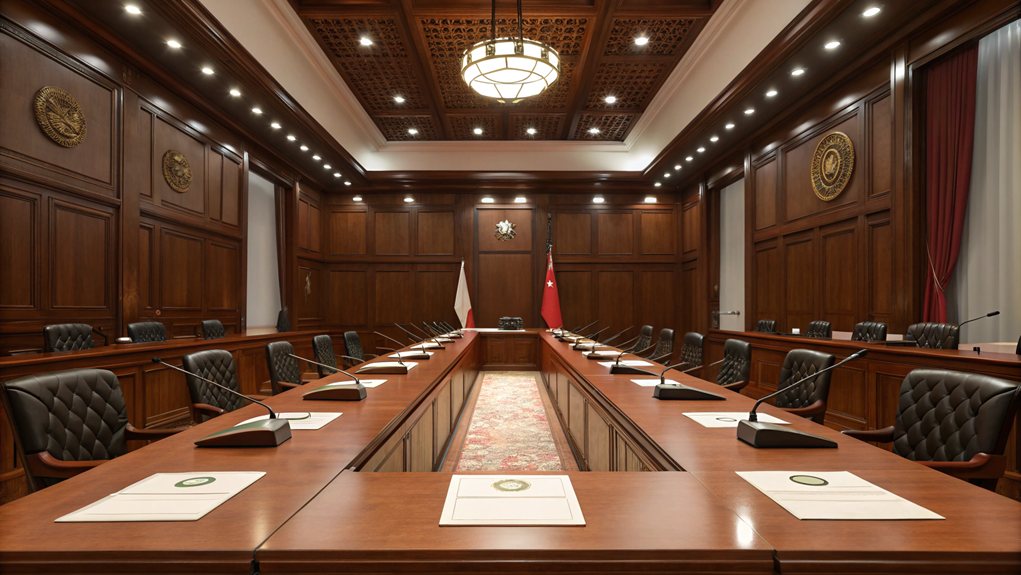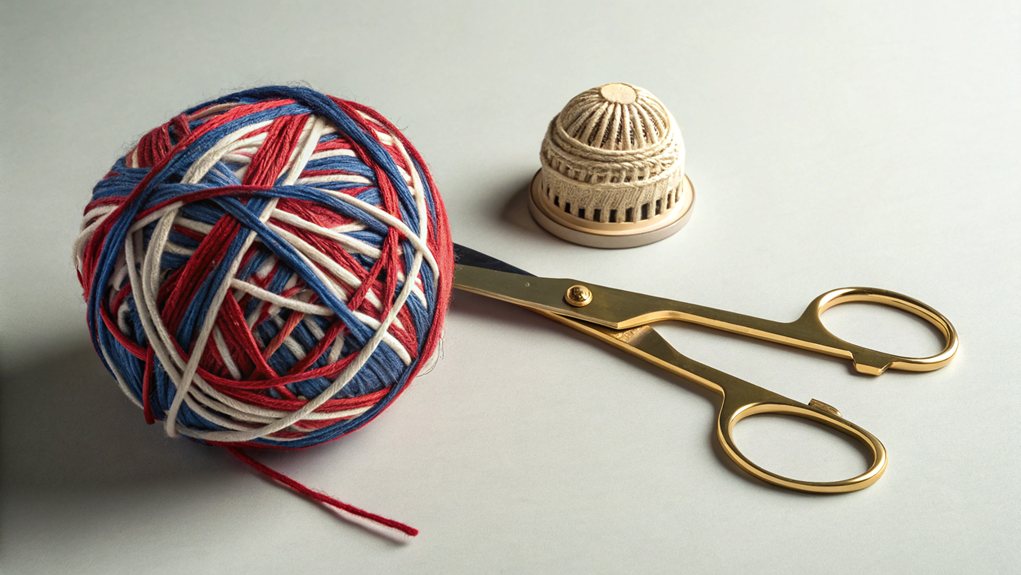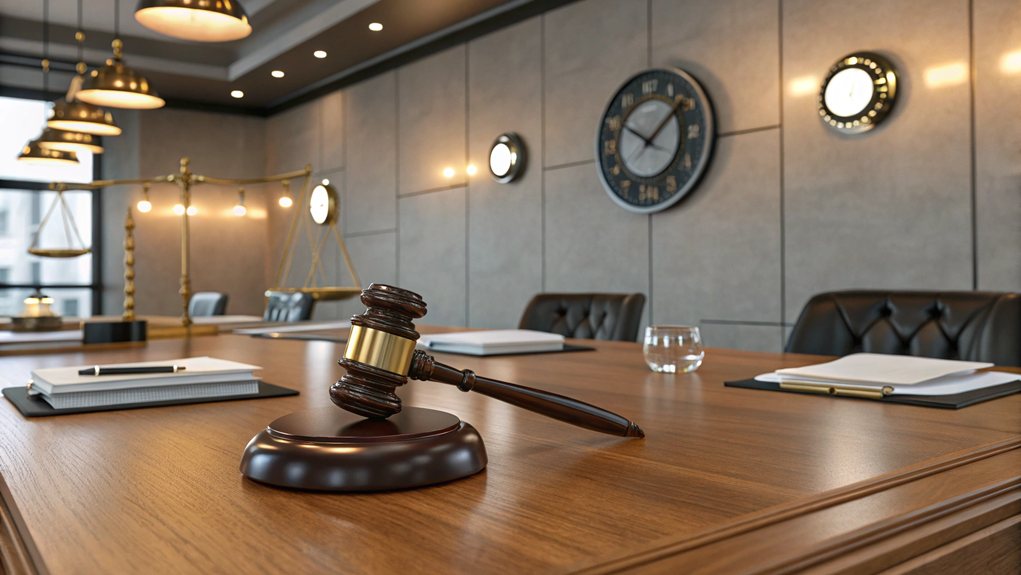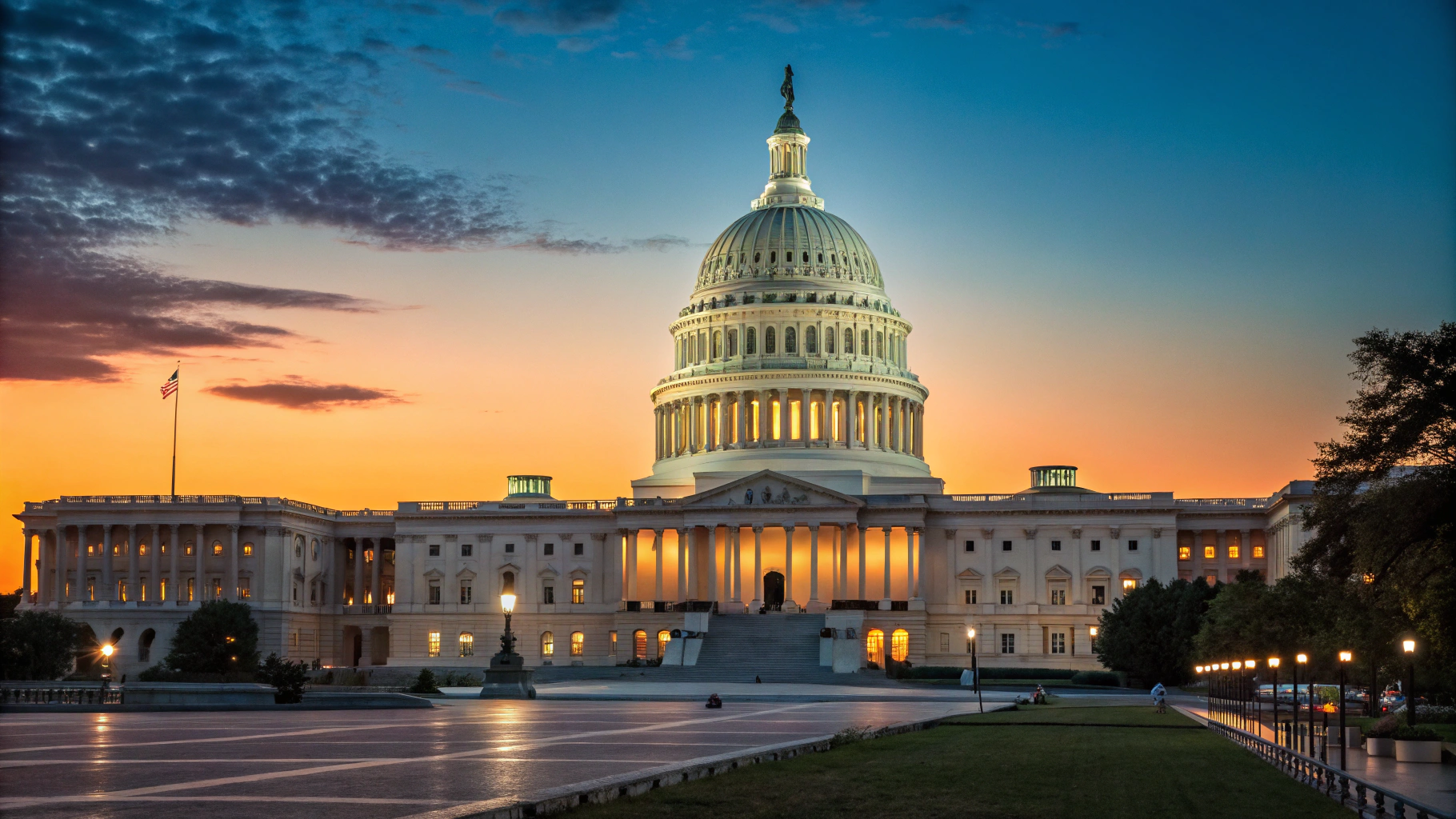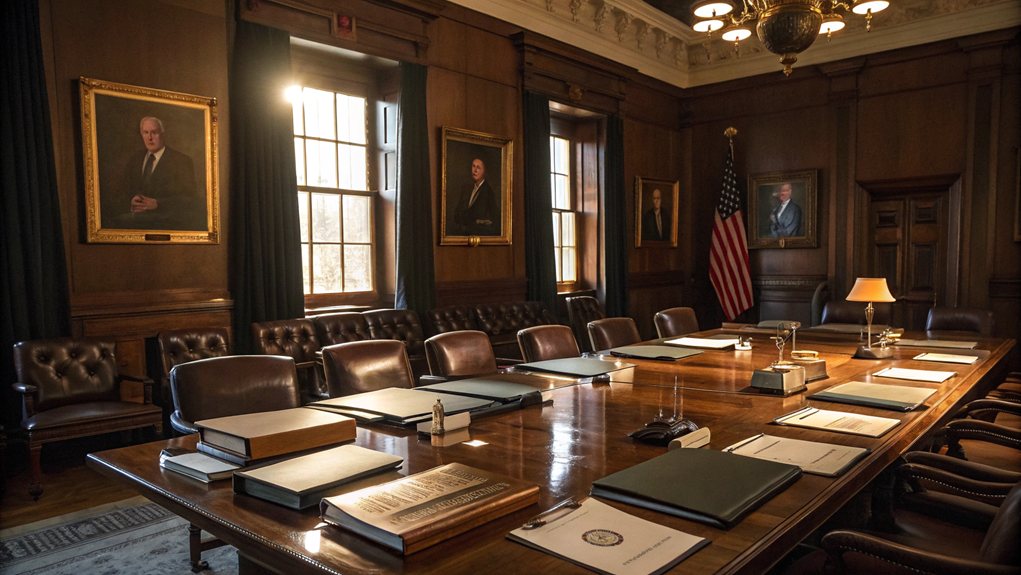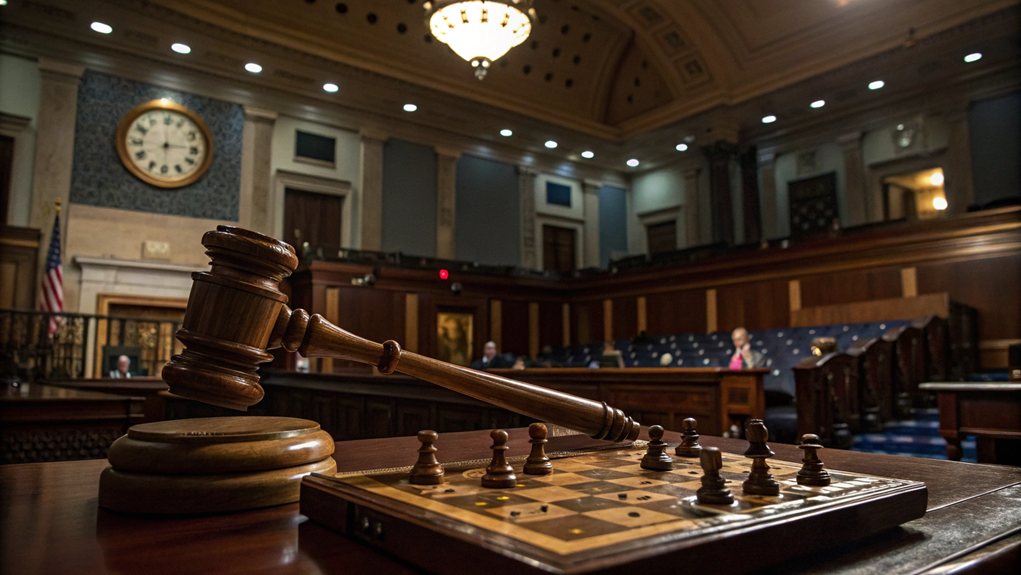Congressional hearings are where the real action happens in U.S. politics. They're not just formalities. Legislators propose laws, lawmakers check up on government, and presidential nominees get grilled. It's all about accountability—or so they say. Lots of witnesses, sometimes even those with clashing views. The public gets a ringside seat, but it can get messy. Expect political drama and honest questions. Curious about what happens after the hearings? Stick around for more insights.
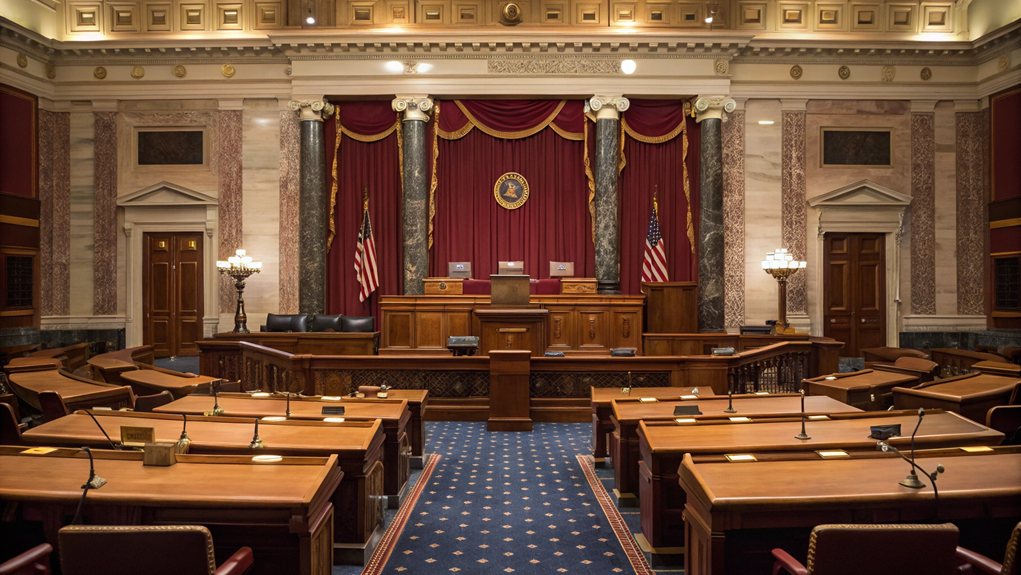
Understanding Congressional hearings can feel like trying to decode a secret language. They serve multiple purposes, but let's break it down.
First up are legislative hearings. These are all about proposed laws; basically, Congress wants to know if they're making a good call. Then there are oversight hearings, where Congress plays watchdog over government operations. Investigative hearings? Think of them as detective work on waste and fraud. Confirmation hearings? That's the Senate's way of vetting presidential appointments—because who doesn't love a good background check? And don't forget field hearings, where Congress ventures outside Washington to hear from the locals. Shocking, right? Congressional hearings also play a pivotal role in shaping public opinion and influencing policy-making.
Legislative, oversight, investigative, confirmation, and field hearings—Congress has a full toolbox for tackling laws and oversight.
Preparation for these hearings is a whole production. Committees gather background information from various sources. They select witnesses, aiming for a mix of perspectives. It's like casting a reality show. They draft hearing memoranda to outline what they want to achieve. Then, they make it public—because transparency is key, folks. They even reserve a hearing room; yes, that's a thing. Committees are required to adopt and publish written rules of procedure, ensuring that the process is transparent and consistent. Additionally, the role of Congress in policy making means that external information sources greatly influence the legislative decisions made during these hearings.
During the actual hearings, there are rules. A quorum, that's a fancy term for having enough members present, is necessary. Committee members kick things off with opening statements. Witnesses then take the stage, offering summaries of their written testimonies. The questioning period follows, where committee members grill witnesses like it's an interrogation scene in a crime drama.
Most hearings are open to the public, but some may be closed—because who doesn't love a bit of secrecy?
After the hearing wraps up, transcripts are prepared. Summary reports help members digest what's been said. Sometimes, committees follow up with additional questions for witnesses. All of this contributes to building a public record on issues. It's messy, complicated, and often politically charged. But hey, that's politics for you. Welcome to the circus.
Frequently Asked Questions
Who Can Request a Congressional Hearing to Be Held?
Who can request a congressional hearing? Well, it's mostly the committee chairmen—those folks in charge of the committees. They have the power.
Individual members? Not so much. They can ask, but it's like asking a cat to fetch.
Committees, backed by their respective Houses, hold the reins. And sure, the Executive Branch might listen, but only if it feels like playing nice.
How Long Do Congressional Hearings Typically Last?
Congressional hearings? They can be a real mixed bag.
Typically, they last from 90 minutes to several hours. If it's a full committee thing? Buckle up for over three hours.
Each witness gets about five minutes to spill their guts—then it's five minutes of questioning.
And don't forget those marathon "cattle call" sessions that drag on late into the night. Fun times, right? Just another day in the world of politics.
What Happens if Witnesses Refuse to Testify at Hearings?
When witnesses decide to play hardball and refuse to testify, things can get messy.
They risk being held in contempt of Congress, which isn't just a slap on the wrist. Think fines and even jail time.
Sure, they can invoke the Fifth Amendment, but that doesn't make them popular. Public opinion? Not great.
Plus, legal battles can ensue, making everything a tangled web of courtroom drama.
It's a risky game, for sure.
Are Congressional Hearings Open to the Public?
Congressional hearings? Yeah, they're mostly open to the public. People can waltz in and watch the drama unfold.
But hold on—some hearings get the closed-door treatment for reasons like national security. It's not all exclusive though; many are streamed online, so you can watch from your couch.
Transcripts? They take a bit to appear, but prepared statements pop up pretty fast.
Can Congressional Hearings Influence Legislation Directly?
Sure, congressional hearings can definitely shake things up. They gather info, hear testimonies, and let the public chime in.
All that chatter can steer legislation in a new direction. But let's be real—it's often a partisan circus. Who gets invited? Depends on the agenda.
Still, those hearings create a record that can't be ignored. They're a big deal, influencing what lawmakers do next.
